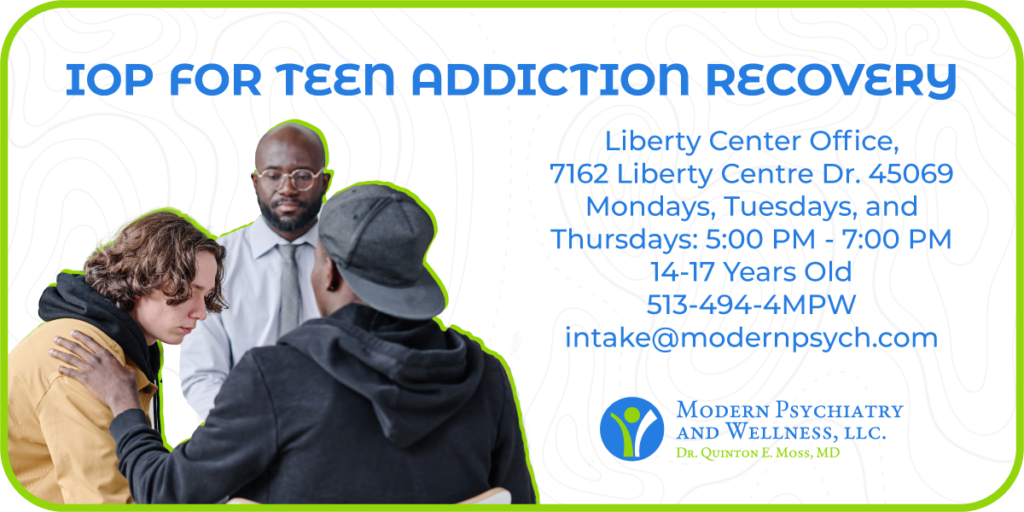Taking care of the mind is just as important as taking care of the body, especially during the teenage years. This time in life is packed with changes—both exciting and challenging. It’s when we really start to figure out who we are, and that can bring up a lot of feelings, sometimes even tough ones to handle. Youth mental health is an essential component of comprehensive well-being, given that the teenage years are a pivotal period characterized by substantial emotional, psychological, and social growth. Throughout this phase, adolescents are especially susceptible to mental health issues, which can result in enduring consequences if they are not addressed in a timely and efficacious manner.
The Road to High School Mental Health Starts with Understanding
>>>Download Our Fact Sheet <<<
Recognizing the Pivotal Role of Adults in Youth Mental Health
Adults that teenagers look up to or interact with frequently—such as teachers, counselors, parents, and coaches—are uniquely positioned to make a profound impact on the mental health of adolescents. While teenagers are often characterized by a push for independence and occasional rebellion against authority, this does not diminish the crucial role that these trusted adults play in their lives. In fact, the way these adults interact with teens can significantly influence their mental health and well-being.
Research consistently shows that supportive relationships with adults can act as a buffer against stress and mental health issues. Teenagers may outwardly seek autonomy, but they still deeply value and are influenced by the guidance and support of trusted adults. Here’s how these interactions matter:
- In educational settings: Teachers can create a supportive and inclusive environment that encourages open communication about mental health. By incorporating social-emotional learning into their curriculum, they help students build resilience and coping skills. Empathy and understanding from teachers can make students feel valued and heard, alleviating feelings of isolation and stress.
- In counseling scenarios: School counselors and mental health professionals provide one-on-one support, facilitate group sessions, and connect students with external resources. Their approachability and willingness to listen without judgment help students feel safe in expressing their concerns. Effective counseling aids students in developing strategies to manage their emotions and cope with challenges.
- At home: Parents can foster a safe and nurturing space where teens feel comfortable discussing their feelings and challenges. Consistent, non-judgmental communication from parents builds trust and encourages teens to share their struggles. Active listening and validation from parents can reduce anxiety and boost their children’s confidence.
- In extracurricular activities: Coaches promote the importance of mental health alongside physical health. By emphasizing teamwork, building self-esteem, and providing positive reinforcement, coaches create a supportive environment that helps teens thrive. Attention to athletes’ mental well-being and addressing issues like stress and burnout can make a significant positive impact.

Participating in extracurricular activities, like sports, is a great way to support youth mental health!
Tailored Approaches to Support Youth Mental Health
Supporting adolescent mental health requires a nuanced approach, tailored to the individual needs of each young person. It’s essential for adults to take the time to understand each young teen’s specific situation, feelings, and experiences in order to provide meaningful and effective support.
So, what specific actions can be taken to ensure adequate support is provided?
Educating Yourself on Mental Health Issues and Resources
- Stay informed about teen mental health and depression and other mental health conditions, including their symptoms and available treatments, to enhance your understanding of mental health.
- Familiarize yourself with local and online resources, including counseling services, support groups, and educational materials.
- Attend workshops or training sessions on adolescent mental health to enhance your understanding and skills.
Fostering Open Communication for Safe Expression of Feelings
- Show up regularly and be reliable. Consistency in your presence and behavior helps build trust and connection between teenagers and adults.
- When having deeper conversations, put away distractions, maintain eye contact, and focus fully on what they are saying. Ask open-ended clarifying questions to ensure you get the full picture.
- Model openness about your own emotions by sharing them honestly, emphasizing that seeking help is a sign of strength and resilience in navigating challenges.
Advocating for Accessible Mental Health Services and Resources in Schools and Communities
- Work with school administrators and community leaders to ensure that mental health services are available and accessible to all students.
- Collaborating with school administrators and local authorities to make mental health services readily available to students is essential in creating an inclusive support system that caters to diverse needs.
Encouraging Resilience Through Problem-Solving Skills and Team Activities
- Teach adolescents problem-solving and coping skills to help them learn to navigate challenges effectively.
- Encourage participation in team activities, such as sports or group projects, to build social connections and teamwork abilities.
- Promote extracurriculars, hobbies, and interests that can serve as healthy outlets for stress and anxiety.
Utilizing Technology for Additional Mental Health Support
- Recommend mental health apps and online platforms that offer tools for managing stress, anxiety, and other mental health issues.
- Encourage the use of telehealth services for convenient access to counseling and therapy.
- Promote safe and responsible use of social media to create a healthy network of creativity, support, and learning.

Having access to professional support and resources can be crucial for adolescents.
The Role of Professional Support in Youth Mental Health
Seeking professional mental health services for teens is an important step towards supporting their well-being. Here’s when and how to consider it, along with an overview of specialized care options:
When to Seek Professional Help
When emotional or behavioral issues persist despite other efforts, it may indicate the need for specialized care. Additionally, if mental health challenges significantly impact academics, relationships, or daily functioning, seeking professional help can provide essential support. Safety concerns, such as self-harm, suicidal thoughts, or serious mental health crises, necessitate immediate attention from trained professionals. Furthermore, issues like trauma, eating disorders, or substance abuse require expert care due to their complex nature and potential long-term effects on adolescent development and well-being.
Referring to Professional Support
Normalization of seeking help involves highlighting it as a positive step towards improving youth mental health. By using reassuring language and involving teenagers in the decision-making process, adults can foster a supportive environment for seeking professional support. Available options typically encompass therapy modalities such as Cognitive Behavioral Therapy (CBT) and Dialectical Behavior Therapy (DBT), along with case management services and psychiatric evaluations for medication management when appropriate. These approaches ensure comprehensive care tailored to the individual needs of adolescents experiencing mental health challenges.
By encouraging professional support without stigma, we ensure teens receive timely care, supporting their mental health effectively.
Overcome the Stigma of Youth Mental Health
Supporting youth mental health is a shared responsibility among adults, necessitating proactive, informed, and compassionate approaches. By destigmatizing professional mental health services and emphasizing supportive communication, we ensure adolescents receive essential care.
Explore resources and specialized programs like those available at Modern Psychiatry and Wellness to further support our collective efforts in fostering youth mental wellness effectively. Together, we can create nurturing environments where teens can thrive emotionally and mentally. Contact us today!





